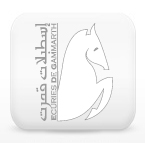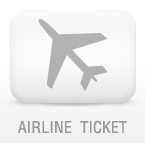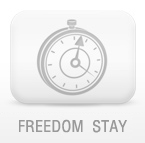Definitions
Trekking here means walking, hiking etc…
Camel trek: The trip is actually on foot, the
camels are there only to carry personal belongings and other provisions.
There is usually one camel per two people
Camel ride: Every participant is offered a camel to ride apart from pack camels which are there to carry luggage and food.
Levels
Please choose your group tour following the number of the camels provided.
Each expedition is equipped with 1 to 3 camels according to the degree of difficulty of the following: Type of terrain; uneven roadway; duration of the walk; the altitude; the weather; the duration of the tour; the level of comfort and the psychological commitment needed
| moderate = 3 to 4 hours hike and up to 300 meters of uneven track a day. No technical difficulties. A well motivated but novice hiker. | |
| Intermediate hiker = 5 to 6 hours hike and from 300 to 1000 meters of uneven path or cycling tracks which can be quite tricky. Trekking experience required. | |
| Good hiker: 5 to 7 hours hike and from 500 to 1200 meters of uneven tracks on various terrains. Good hiking experience needed with good physical and psychological conditions. |
Physical and mental preparation
Physical: whether you have chosen a moderate or more strenuous hike, please take this opportunity to exercise and keep fit.
We would advice you to work out 2 to 4 weeks before you commit yourself to an expedition tour. Just 10 minutes workout a day even at home; jogging weekends or cycling etc… would be enough.
Do not under estimate your ability when trekking
Mental: it is also important to prepare yourself mentally for a trekking tour i.e. you need to leave all your worries and troubles behind in order to enjoy the positive side of life.
You need to search for new sensations; that is to accept breakfast different to the one you are used to for instance; not to take shower every day; to be with different people speaking different language and having different culture and lifestyle.
You need therefore to prepare yourself to learn from people’s differences and to prove your tolerance. In a nut shell, you need to be a good team player and enjoy the real virtue of life.
Transport
You only need to carry a small rucksack for what you require for the day and for your picnic.
Itinerary
The itineraries are there as a guide and may change by our tour leaders due to unusual weather patterns, accommodation, the strength of the group or for security reasons.
Kit list
we would like to advise you to limit the weight of your luggage as much as possible. Your main bag should not in fact exceed 13 kg in order to smooth the progress of your move about on terrain and also not overload the camels and the vehicles.
In fact, there is no need to carry loads of spare clothes especially in the Sahara as the air is dry and you are more unlikely to need to change more often.
Siroko travel offers you all the structural equipments required in the desert i.e Bedouin tent, sleeping mat and cover etc… However you need to bring the items listed below. Please note that these items are purely recommendations. Please bring as little as possible but bring everything you need. Traveling light is much less of a hassle so do not bring things you can do without. The general rule is that if you do not need it do not bring it.
You will need:
- Baggage and sleeping
- Sleeping bag (for the desert expedition)
- Large rucksack
- Day rucksack for your daily needs
- Clothing
- Trekking boots ( for hiking on the mountains)
- Sandals or flip flops ( for the desert)
- Trainers
- Jumpers( for winter)
- Anorak
- Lightweight waterproofs ( jacket + trousers)
- Trousers ( such as lightweight cargo trousers)
- Scarves
- Swimwear
- Underwear
- Long sleeved shirts
- T-shirts
- Wide brimmed hat/ cotton head dress ( also called Cheche which you can buy on the spot) to protect you from the sun and the sand
- Socks ( trekking socks)
- A couple of pullovers or sweatshirts depending on the season
- Thermal for cold nights ( optional)
- Ankle gaiters ( for stopping grass scratches and rashes)
- Health
- Insect repellent
- Sun protection
- After sun/moisturiser
- Vitamins (optional)
- Lip salve with sun protection
- Small first aid Kit
- pain killer
- adhesive dressing/plasters
- blister pads
- antiseptic spray
- diarrhea tablets
- any medication you normally use
- Hygiene
- You daily hygiene: shampoo, conditioner, sanitary products, antiseptic wipes (needed in the desert), shaving kit, tooth paste and brush, hair brush etc…
- Other
- sunglasses
- binoculars
- camera
- Torch with spare batteries and bulbs
- Walking stick (telescopic)
- Flask
- Water purification tablets/ iodine drops
- Re-sealable plastic bags for dirty washing etc…
- Penknife
- All your documents (travel documents, travel insurance, credit cards / travelers / cash etc…)
The group
We are keeping to a small group from 6 to 15, preferably having the same language and the same passion to discovery. This is to limit the impact we have on the surrounding environment and encourage contact with local people.
The Support group
In the desert: you will be catered for by a Tunisian tour leader assisted by camel drivers and cooks.
In the north: our experienced professional tour guides together with the drivers who are also cooks will be taking care of you
Accommodation
In the desert: the first and the last night of your trip are spent in a 3 star hotel in Djerba, Tozeur or Douz depending on your arrival time. The rest of the trip is in a bivouac. You spend the nights in a Bedouin tent or in open air. This is indeed the lavishness of the desert.
You may need a warmer sleeping bag in winter. Of course, there will be no showers in the desert but “corner toilets” can be arranged. In the desert, you need to appreciate that comfort is rather rustic, water is perhaps a luxury. You need therefore to compensate comfort for discovery.
In the north: 3 star hotels with small capacity but with character which we have chosen on the basis of authenticity and comfort.
Assistance
All transfers are in 4×4 cars or mini buses.
*Camel trek: The trip is actually on foot, the camels are there to carry personal belongings and other provisions only. There is usually one camel per two people.
*Camel ride: Every participant is offered a camel to ride apart from the pack camels which are there to carry luggage and food.
Food
we give great importance to food. We believe that a good trip is a trip where we can enjoy good food. Food will always be ample and appetizing and provide heaps of energy. Fresh fruit and vegetables as well as meat and starchy products will be the base of our meals with cheese as supplement. Each participant will also have two bottles of water a day. Protecting the environment :
from an ecological point of view, please ensure that all rubbish is disposed of responsibly such as toilet rolls, linen etc… Take nothing but your memory and leave nothing but your footprints
Climate
| In the desert: | December and January : the amplitude of temperature between day and night in the desert is very important. You can encounter clear skies but the bivouac might be quiet rough. At night, temperature usually drops quite radically and is often well below zero degrees. November and February : it is neither too cold nor too hot. It is rather moderate weather and there is no great difference in temperature between days and nights. September, October, March, April and May : it is rather hot during the day. Evenings are cooler but the sky can be quiet cloudy. June, July, August and September too hot |
| In the north : | Mediterranean weather. In winter, you may layer up of half season clothes with winter jacket. From June to September, you only need light summer garments. |
Siroko Travel Leader and specialist of the rides and the ecotourism gives you the opportunity to discover another Tunisia.





